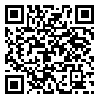BibTeX | RIS | EndNote | Medlars | ProCite | Reference Manager | RefWorks
Send citation to:
URL: http://etiadpajohi.ir/article-1-3203-en.html
Objective: The present study investigated the effectiveness of virtual reality-based relaxation therapy on perceived stress, resilience, and craving in individuals with substance use disorder at residential centers in Andimeshk city. Method: This was a quasi-experimental study with a pre-test and post-test design with a control group. The study population included all individuals with substance use disorders who referred to residential centers in Andimeshk city in 2024. A total of 30 individuals were selected using convenience sampling and were randomly assigned into an experimental group (n = 15) and a control group (n = 15). Participants in both groups completed the perceived stress questionnaire, the resilience questionnaire, and the craving scale in the pre-test and post-test phases. The virtual reality-based relaxation therapy was conducted in 8 sessions of 60 minutes each. The data were analyzed using multivariate and univariate analysis of covariance. Results: There was a significant difference between the experimental and control groups in terms of perceived stress, resilience, and craving. Specifically, the virtual reality-based relaxation therapy led to a decrease in perceived stress and craving and an increase in resilience in the experimental group. Conclusion: Virtual reality-based relaxation therapy, which utilizes techniques such as breathing exercises with audio commands, lighting and color spectrums, progressive muscle relaxation, calming music combined with user-selected immersion in forests and beaches, spiritual relaxation, and restorative experiences (the joy of life and recovery) in a virtual reality environment, can be used as an effective treatment to reduce perceived stress, increase resilience, and decrease craving in men with substance use disorder.
Received: 2024/10/14 | Accepted: 2025/04/29 | Published: 2025/09/8
| Rights and permissions | |
 |
This work is licensed under a Creative Commons Attribution-NonCommercial 4.0 International License. |






